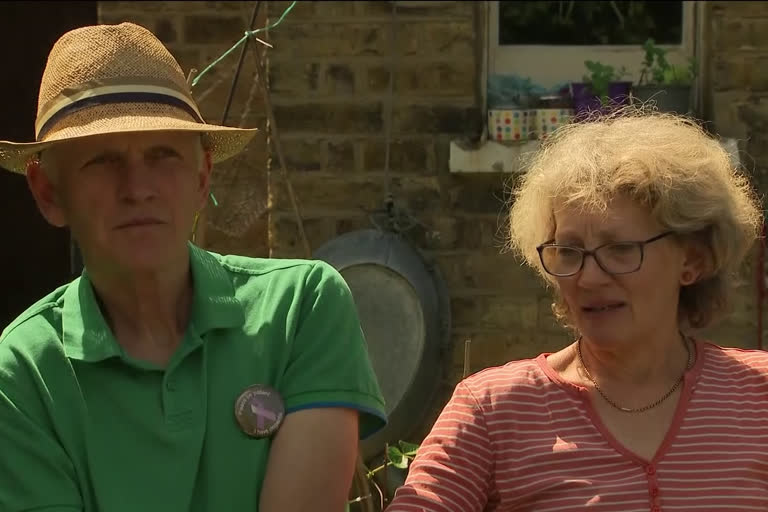London: Researchers at the University of Exeter in the UK say anyone carrying a faulty gene linked to dementia has an increased risk of contracting COVID-19.
According to the team, people with dementia are three times more likely to develop the most severe form of COVID-19 but are currently not one of the groups advised to shield from the virus by the UK's government.
It's a familiar scene during the UK-wide lockdown to prevent the spread of COVID-19 - a married couple finding an enjoyable way to exercise.
But Jill and Paul Davidson have additional complications - four years ago, Paul was diagnosed with a common form of dementia, known as FTD (Frontotemporal dementia).
Read | Russia to hold World War II victory parade on June 24
Just before the coronavirus outbreak began, the couple's son and nephew both moved out.
They had been invaluable support when it came to caring for Paul.
"I needed somebody around just to make sure that everything was safe here because Paul will just go," says Jill.
She adds that Paul has gone missing a few times on walks.
Read | COVID-19 is just a tip of the iceberg: China's 'Bat Woman'
Despite not being tested, Jill is pretty sure both she and Paul contracted the virus in March and recovered.
That's a relief for them, given researchers in Exeter and Connecticut in the United States have now discovered that the same gene mutations which cause dementia - E4 - can also double the risk of developing severe COVID-19.
Alzheimer's specialists say the at-risk group is a relatively small part of the population, but still large enough to be considered.
Dr. Carol Routledge, director of research at charity Alzheimer's Research UK, says the findings should be approached with caution.
Despite the large study group, just 37 people with the risk gene tested positive for COVID-19. The study analyzed data from participants with European ancestry, meaning it may not be relevant to other groups.
"Dementia patients aren't one of those groups that are, I guess, protected further, maybe they should be so," she says.
"So, I do think there are potential implications, but the number of people with the APOE E4 genotype is relatively low. But certainly, I think it does have implications and we should take note of it."
Paul has adapted to new coronavirus restrictions with exercise and support through the internet, like singing lessons he's grown to love.
Jill is grateful she was blissfully ignorant of this latest research before catching the virus and before lockdown began.
"I think if I had been aware of it at the time, it probably would have been even more of a worry for me," she says.
"But that said, if we'd have had to lock down like the people who are really at risk, that would have been even more, for mental health, that would have been far worse for us because exercise and getting out in the fresh air is the only thing that we, well, Paul has to look forward to every day."
(AP)



